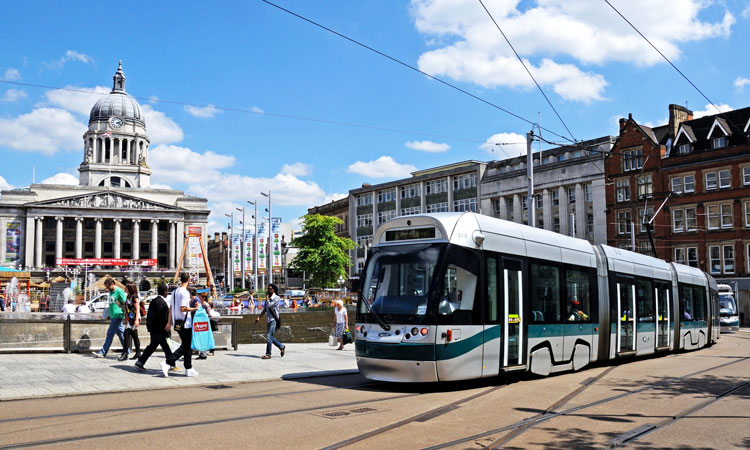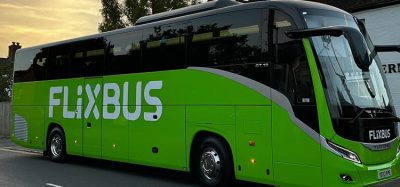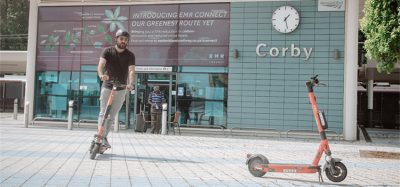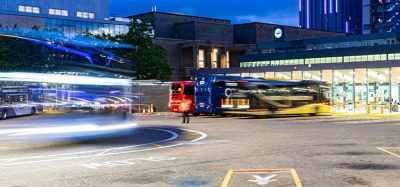Time for the Midlands to tap-and-GO
- Like
- Digg
- Del
- Tumblr
- VKontakte
- Buffer
- Love This
- Odnoklassniki
- Meneame
- Blogger
- Amazon
- Yahoo Mail
- Gmail
- AOL
- Newsvine
- HackerNews
- Evernote
- MySpace
- Mail.ru
- Viadeo
- Line
- Comments
- Yummly
- SMS
- Viber
- Telegram
- Subscribe
- Skype
- Facebook Messenger
- Kakao
- LiveJournal
- Yammer
- Edgar
- Fintel
- Mix
- Instapaper
- Copy Link
Posted: 19 January 2021 | Simon Statham | No comments yet
Simon Statham, Head of Technical Programmes at Midlands Connect, speaks to Intelligent Transport’s Luke Antoniou about the proposal for a capped tap-and-go payment system across the Midlands.


Looking at the scope for the new ticketing system, is the proposal for it to be Midlands wide, or specifically the West Midlands?
The point of implementing a system like this is that it’s scalable; we can build one system and later bring other areas into it at negligible cost. Our initial idea is that, on day one, it would be ready for rollout in the West Midlands and the Nottingham operating area. Those places are ready now – they’ve got the right agreements in place and, importantly, working relationships with operators.
The technology is the easy bit, to a certain extent. It can be harder or more complex to get the commercial agreements in place with operators. We know the West Midlands and Nottingham area, we have already worked with the operators in these areas, and obviously Transport for West Midlands and Nottingham City Council. We know that the commercial arrangements can be put in place quite quickly, and that they’ve got the right kind of relationships with their operators.
That’s looking at day one of the system’s launch, however, we estimate it will take between 18 months and two years to actually build it. If other areas can work to achieve the same sort of relationships with their operators, there’s very little standing in the way of any other area in the Midlands joining this system. The system’s scalability is crucial to being able to bring different areas together. For example, if Nottingham and Derby wanted to introduce a cap that operated across both areas, we can implement that – it’s just a matter of inputting some rules into the engine. You could have a cap that operates solely within Nottingham, or you could have a slightly different cap that operates in both Derby and Nottingham together. Ultimately, we could stitch the whole of the Midlands together and have a daily cap that applies across the entire region.
What kind of scope is there to make this a more multimodal system?
It will be buses and trams initially, where they operate together, but certainly the potential is there to tie it into a similar system for rail.
In theory, it could be a platform for Mobility-as-a-Service as well. You could tie in bike-sharing and car-sharing with the passenger just tapping their card for access to all services. It’s just a case of getting the systems in place.
This system is actually quite ‘light touch’, in that it just sits over the top of these services – the operators still maintain their own back offices. If there’s transference between mode or transference between operator, then the system knows about it and applies a cap. If there’s no transfer and the traveller makes their daily trips on a single operator or a single mode, then the system doesn’t kick in. Single operators can have their own daily caps at different rates, and the system doesn’t interfere with that at all.
Our system is purely to bridge the gap across multiple modes and operators. As such, there’s very little interference with the daily operation of individual operators and how they prefer to operate their own businesses.
What’s the impact of not taking that all-encompassing back-office approach?
It’s simpler and a lot cheaper, but I think more importantly, it’s less disruptive to commercial operators. They don’t have to hand over the operation of their commercial acumen or their commercial operation to someone else’s back office. The system needs only a small amount of information to work, detecting a traveller on their first operator of the day and then essentially tracking them with a unique identifier onto a different bus operator, tram operator, train operator or a hire-car operator. An operator’s commercial data arrangements are, and remain, their own.
The unique identifier keeps travellers anonymous to the system, whether they’re using a bank card or a smartcard. When the system sees that identifier appear across different operators, it triggers a business rule that overrides the individual operators’ rules and charges them one flat daily rate.
It’s all about establishing trust between us and the passengers that they will be charged the best fare. They need to trust that even if they were to do a hundred different trips, they’re still going to get charged the daily cap.
What kind of hurdles are being faced in trying to get operators on board with a system like this?
It’s not straightforward because, naturally, everybody has their own vested interests. The consultation with operators is being led so far by Transport for the West Midlands and Nottingham City Council. The reason they’re further ahead in this is due to the long history they have of creating partnerships and of collaborating with the operators in their areas. They know that this should be relatively straightforward, because the idea of account-based ticketing and account-based fare charging is not unfamiliar to their operators.
In other areas, you could argue that this kind of system is less needed – for example, those which have perhaps one dominant operator and only a small number of other operators. If 90 per cent of services are run by one operator, then a multi‑operator system doesn’t hold the same value. As such, it may be more difficult to convince the larger operators to be a part of this system.
We know that we can make it work in the West Midlands and Nottingham – our job at Midlands Connect is to try to help other areas get ready. The advantage is that it costs virtually nothing to then expand it to other areas. There are still various conditions that operators needs to meet before they can be integrated into the system, though: they need to have their own model two back office, as this tap and cap system doesn’t replace that; and they would also need an EMV system where passengers tap their bank card on their buses, as without it our system couldn’t sit over the top.
There’s work to do outside of the West Midlands and Nottingham to get to the place where, firstly, the hardware is right, and secondly, the commercial agreements are in place. Success in the first two locations will be critical; if we can demonstrate the system’s worth and value, and demonstrate that it has an effect on patronage, then it becomes easier to bring other areas on board.
We have already been approached by groups of operators outside of our area who tell us they are looking closely into the system.
The system still requires operators to have collaboration agreements on fare sharing, fare sharing rules, business rules, and so on. It will require people who have their own vested business interests to come together. However, it’s fair to say that operators are always looking for ways to try to boost their patronage, so if we can demonstrate that it’s not taking money out of their pocket, and increasing patronage across an entire area, then it’s a win-win.


The rest of this content is restricted - login or subscribe for free to access
Thank you for visiting our website. To access this content in full, you'll need to login or subscribe.
It's completely free to subscribe, and in less than a minute you can continue reading. If you've already subscribed, just login.
Why subscribe? Join our growing community of thousands of industry professionals and gain access to:
- Quarterly issues in print and/or digital format
- Case studies, whitepapers, webinars and industry-leading content
- Breaking news and features
- Our extensive online archive of thousands of articles and years of past issues
All for free!
Click here to Subscribe today Login here
Related topics
Passenger Experience, Public Transport, Ticketing & Payments
Issue
Issue 4 2020
Related modes
Bus & Coach, Tram
Related cities
United Kingdom
Related organisations
Midlands Connect
Related people
Simon Stratham








